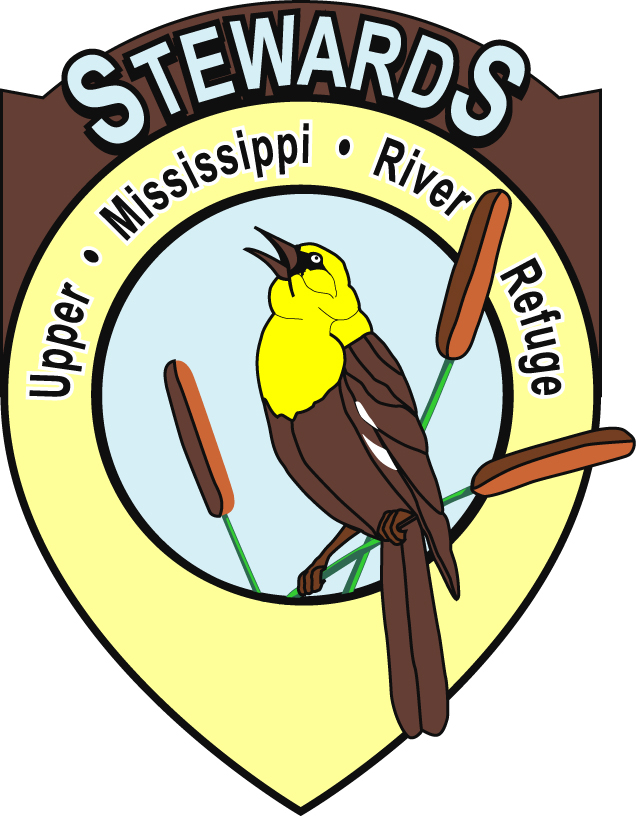If your a frequent user of Amazon, you can now support the Stewards of the Upper Mississippi by using Smile Amazon. Its the same shopping experience but adds an extra bonus. Amazon will donate .5% of what you spend to the Stewards. Sounds pretty easy? Shop and donate all at the same time. You will need to select what NFP organization that you wish to support and start shopping.
Monthly Archives: January 2014
Paws on the Ground
Dogs that work with federal wildlife officers need the capabilities of a top–notch police service dog—and more.
They must be able to “work all day around gunfire and still make a compliance check with a waterfowl hunter, or work a beach with 300 people and still be ready to assist with an emergency arrest,” says Darryn Witt, national coordinator of the National Wildlife Refuge System canine program and an officer in Illinois at Upper Mississippi National Wildlife and Fish Refuge.
The Refuge System has eight canine officers, each assigned a dog because they expressed interest. The Refuge System is aiming to add one to two canine teams each year. “We need continuity among our individual canine teams,” says Witt, “as well as consistency in dog selection, training and the way the dogs are deployed.” New canine teams will be established based on officer and field station interest, funding and local need.
Canines are taught to protect officers and locate contraband—from narcotics to antlers, ginseng and waterfowl or game over the limit or out of season.
“If we have to search for something, I can do it in a fraction of the time with a dog compared to four or five officers,” says federal wildlife zone officer Eddie Brannon in Florida, the first refuge law enforcement officer to request a dog in the 1990s. Brannon says he and German shepherd A.J. have helped locate lost hunters, children and people with Alzheimer’s disease.
Witt’s canine, Rudi, can smell marijuana in a tackle box; he can also sniff out heroin, cocaine and methamphetamine. Division of Refuge Law Enforcement deputy chief Rich Johnston says groups of narcotics smugglers have abandoned their drugs and run in the presence of a dog. Dogs also have detected illegal, hidden lead shot.
Protecting Officers
Federal wildlife officers usually work alone and often in remote areas. Dogs can be a force multiplier. “If I show up alone,” says Witt, “I have my own presence. When I bring Rudi with me, it’s a different level of officer presence. People have a lot of respect for the canines.”
Most law enforcement dogs used in the United States are bred in Europe. German and Dutch shepherds and Belgian malinois are considered the best all–around breeds. Refuge System dogs are purchased from American vendors that provide training with handlers after the dogs’ initial law enforcement training. Dog and handler attend 40 hours of refresher training each year. The dogs are certified annually by national accrediting organizations. They must be high–energy but also playful enough to perceive the search for evidence as a game with a possible reward. They are trained to work in extreme heat and cold, in boats and on rugged terrain.
Law enforcement dogs develop a relationship with their handlers. “It’s 24/7 care of a very expensive piece of government equipment,” says Witt. He refutes the presumption that these are “edgy dogs waiting for a fight. They can be friendly, but on command, they can apprehend someone.” In fact, Witt says, Rudi can be extremely social, so he insists that all those friendly people on the beach not pet Rudi so the dog knows he is working.
Johnston calls the canine program “a field initiative that needs to be supported by Headquarters. It directly helps protect the officers and the natural resources of the Refuge System.” And he quotes Refuge System Chief Jim Kurth: “If we can’t put more boots on the ground, we can put more paws on the ground.”

Canines like Rudi, whose handler is federal wildlife officer Darryn Witt at Upper Mississippi National Wildlife and Fish Refuge, are skilled at protecting officers and sniffing out contraband. (Eric Tomasovic/USFWS)
Karen Leggett is a writer–editor in the Refuge System Branch of Communications.
Jr. Stewards Applications now open
The US Fish and Wildlife Service and the Stewards of the Upper Mississippi River Refuge are offering an exciting program called Jr. Stewards. Our mission for this program is to inspire children and their families to connect and be engaged with the natural world. Does your child have a curious fascination with nature? If so, than this program is for you.
This free program is open to ages 9 – 14+. There are only 16 spots open and it is first come first served. We meet the first Saturday of each month, beginning March 1st, 2014, from 9:00 a.m. – 12:00 p.m. through December 2014. Registrations must be received by February 15th.
Some of the sessions are: Discover Life Down Under; Mosquito Hawks, Trip to Neal Smith National Wildlife Refuge, and Migration Sensation to name a few. If you would like more detailed information and download a registration form, click on the Jr. Stewards tab and you will find the form there along with the 2014 Schedule. Contact Pam at the refuge office at 815-273-2732, ext. 116 for more information. Space is limited so don’t wait too long.





















